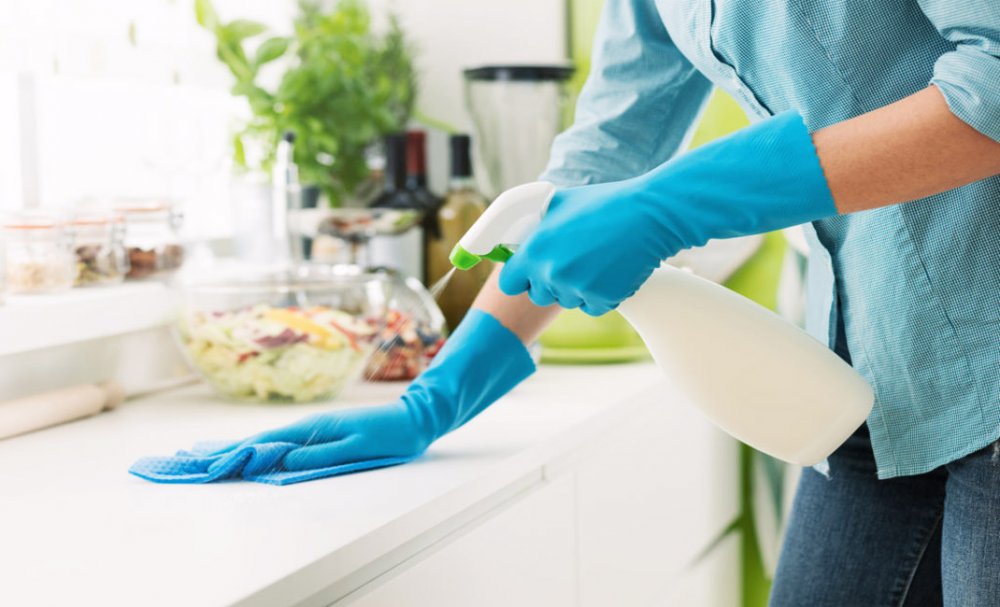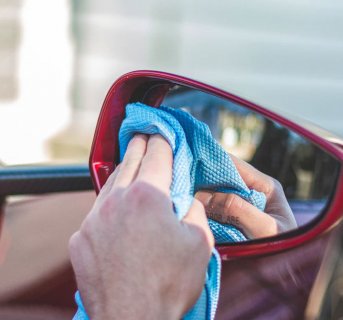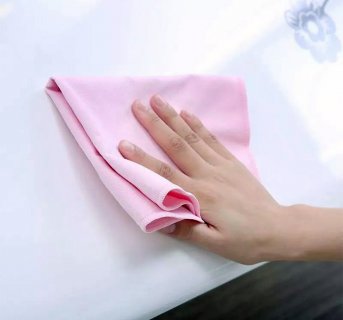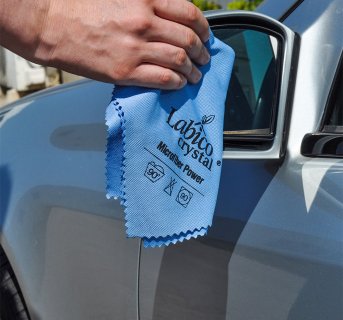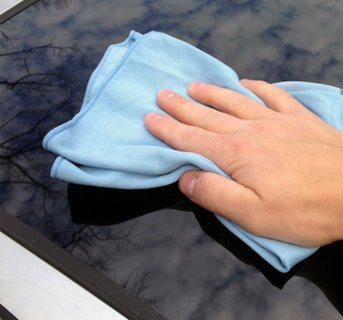Glass cleaners are undoubtedly essential tools for maintaining the shine of glass surfaces. However, the mistaken belief that glass cleaners can clean all surfaces can lead to several undesirable consequences, such as discoloration, damage and fogging.
So read more below about where NOT to use window cleaners.
1. Electronics and monitors
Yes, there is nothing better than a clean screen without dust and fingerprints. But the chemicals in glass cleaners can damage sensitive screens, causing streaks, fogging or even permanent damage. So put Ajax aside, and get the right screen cleaner to ensure the longevity and shine of electronic devices.
2. Wood and furniture
Wooden surfaces, such as furniture and cabinets, require special care to maintain their beauty. We know it's tempting to go over the wooden furniture in the living room while cleaning the windows, but window cleaners can contain ingredients that are too harsh on wood, removing finishes and causing discoloration or warping. Instead, choose wood-friendly cleaners or simply use a mild soap and water solution and gently buff wood surfaces with a microfiber cloth.
3. Countertops and marble or granite
Keep window cleaners away from surfaces made of marble, granite or other natural stones. The chemicals in these cleaners can react with the porous surface, leading to etching, dulling and irreversible damage. Prefer milder cleaners and you will always have impressively clean counters.
4. Mirrors with delicate frames
If the mirrors have delicate frames or decorative accents, glass cleaners can cause unintentional wear or tarnishing of the finish. You should always be careful when spraying cleaners near the edges.
5. Painted surfaces
Window cleaners can wreak painted surfaces. Using them on walls or other painted areas can strip the paint, leaving behind unsightly streaks and patches. For painted surfaces, prefer mild soap and water solutions or cleaners specially designed for painted materials.
6. Plastics and Acrylics
Plastic and acrylic surfaces, such as those found on some household appliances or decorative items, can be easily damaged by the chemicals in window cleaners. These cleaners can cause clouding, pitting or even cracking of the material. Opt for mild soap and water solutions or cleaners designed for plastics to avoid unintentional damage.
7. Stainless steel appliances
While stainless steel appliances are known for their elegant appearance, using cleaners on them can cause quite a bit of damage. In particular, some glass cleaners can corrode stainless steel over time. Opt for stainless steel cleaners or create a water and vinegar solution for effective cleaning.
8. Car windows and windshields
Have you ever wondered why sometimes when you have cleaned and washed the car inside and out, the windows have cloudy spots or look dull as if they need to be cleaned again? Chances are the window cleaner is to blame. But you will tell me that these are also glasses. Yes, but it's not like home! All you need is water, soap and a good cloth!

